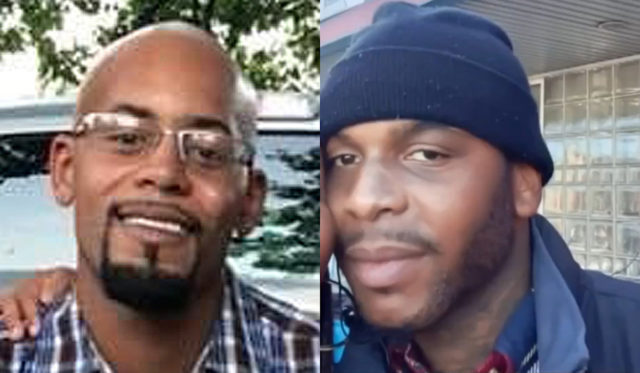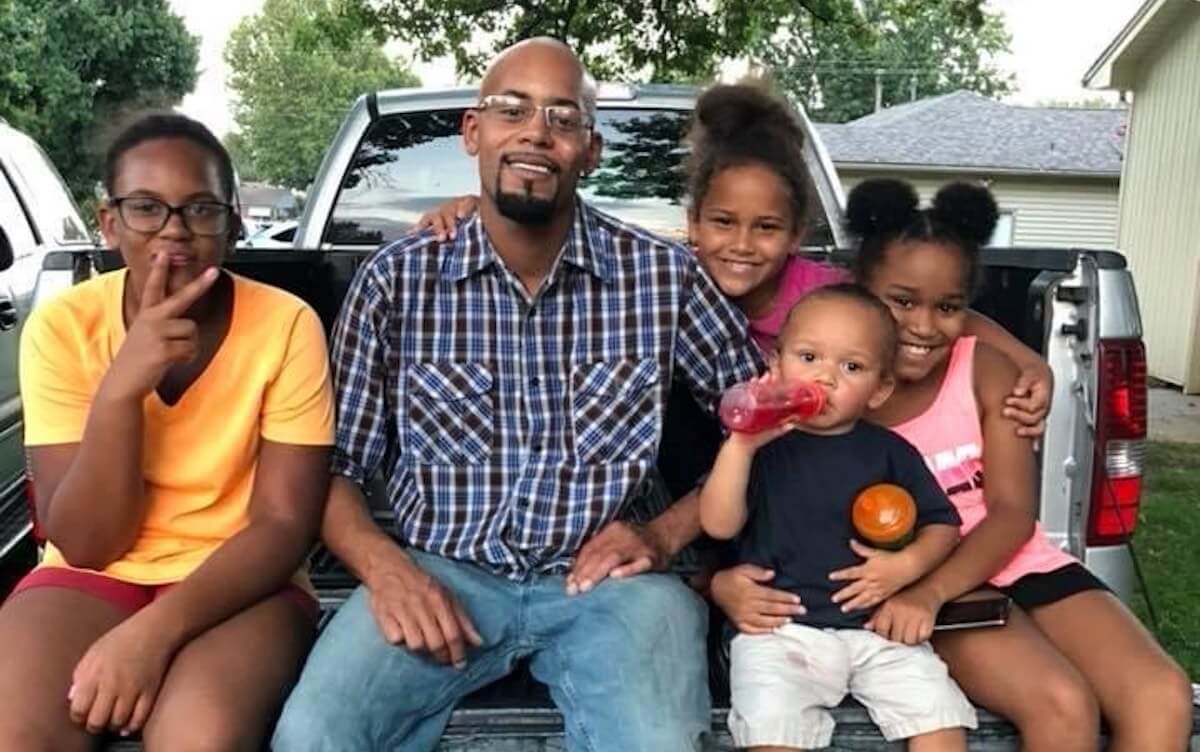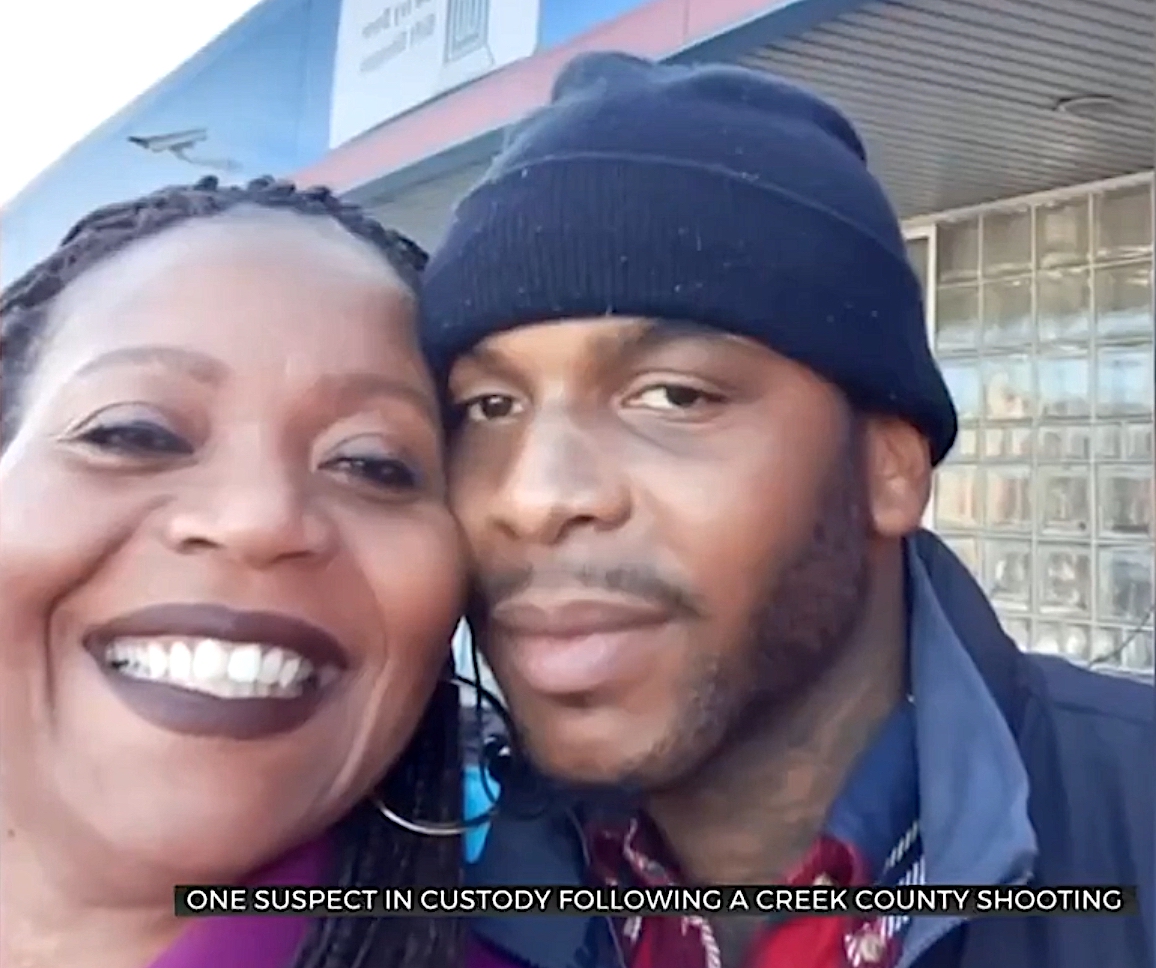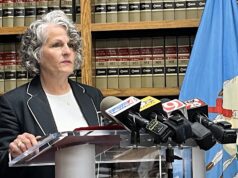
On Tuesday, a judge set a June 14 trial date for a Creek County man charged with first-degree murder in a homicide he says was justified. Weeks earlier, the judge denied a defense motion to consider dismissing the case on the basis of Oklahoma’s “stand your ground” statute.
Kenneth Ray Smith is in jail with a bond of $1 million after he shot and killed Tyris Boyd during a 2020 Labor Day barbecue at Smith’s residence in Sapulpa. Smith says he shot Boyd in self-defense, and his attorney, Ben Fu, requested a “stand your ground” hearing that took place April 19, but Creek County District Court Judge Laura Farris denied the motion to dismiss the case on May 13.
Farris stated in her decision brief — filed June 1, hours before the case’s latest hearing — that she denied the motion to dismiss because Boyd “had no immediate — if any — access to a weapon” when he was shot, making “Smith’s use of force not protected or immunized by the [stand your ground] statue.”
Fu declined to speak on the record with NonDoc about the case, but his support brief outlines Smith’s claims.
“Since [Smith’s] arrest on Sept. 7, 2020, he has maintained that he acted in self-defense,” Fu wrote. “Mr. Smith is a lifelong citizen of the state of Oklahoma, as well as a husband and father who, at 39 years of age, owns his own business and appears before this court with no criminal history.”
Smith’s self-defense claim

Smith says he shot Boyd in self-defense after the victim had threatened multiple people, including an infant, with a gun.
At the time, Boyd was living at Smith’s home with his girlfriend, Jasalynn Snell, who is Smith’s step-daughter.
According to Fu’s brief, on the morning of Sept. 7, Boyd was being physically violent toward Snell, and she, Smith and other residents of the home were pleading with Boyd to leave.
The argument continued for several hours, as guests arrived for the Labor Day party and Boyd’s mother, Theresa Williams, arrived to help him pack his belongings.
Farris, the district court judge, wrote in her decision on the motion to dismiss that Williams had been summoned to Smith’s residence by Snell, who texted her that “[Smith] is getting his gun.” Snell then left the home with her own mother.
Fu’s brief stated that, during this time, Boyd threatened and pointed a firearm at multiple people, including an infant. In her decision, Farris stated that Smith’s brother testified that Boyd had taken Smith’s gun from his hip and pointed it at a woman at the party.
According to Fu’s brief, four witnesses testified April 19 that directly prior to Boyd being shot by Smith, Boyd threatened to shoot Smith and two others, stating, “Y’all think I’m playing? I’ll shoot all of you,” before reaching into the trunk of his mother’s car.
Smith, who had a gun with him at various points during the long argument, claims he shot Boyd in the belief that Boyd was reaching for a firearm.
According to Creek County District Attorney Max Cook and Assistant District Attorney Steve Rouse’s prosecution brief, no witnesses saw a gun in Boyd’s hand when he was shot, and no gun was found during the crime scene investigation. The prosecutor’s brief also argues that Boyd was not reaching into the trunk of the car but was trying to get into the passenger’s seat to leave.
In Farris’ denial of the motion to dismiss, she said there were indications of blood on the driver’s door and in the driver’s floorboard, as well as spent shell casings and bullet defects in the driver’s-side hubcap. The trunk was closed and the car was running when law enforcement’s crime scene investigator arrived.
The gun or lack thereof

Four witnesses testified for the defense that, before the shooting, they had seen Boyd put a duffel bag containing firearms into the trunk of the car he reached into.
Agent Eli Turley of Oklahoma State Bureau of Investigation, who conducted an investigation of the crime scene, found a 250-count box of .40 caliber Smith & Wesson cartridges in the trunk of the white BMW and a black duffel bag containing a .40 caliber Smith & Wesson magazine. Turley’s examination also found that the right pocket of Boyd’s shorts was turned inside out, as if someone had removed an object.
The four witnesses also testified that they saw another man who was present, Khalib Springer, who previously served time with Boyd in the Oklahoma Department of Corrections, remove an object from Boyd’s person after the shooting.
Additionally, Snell testified that she possessed a .40 caliber Springfield XD firearm prior to the shooting, but the weapon has not been located since that day, despite a search of the residence.
The defense contends that Springer likely removed the Springfield firearm from Boyd’s person.
Williams’ testimony and text messages

Boyd’s mother, Theresa Williams, is a primary witness for the prosecution. Contrary to the testimony of the defense witnesses, she said her son was not even upset that day. She also denied seeing her son threaten or point a gun at anyone, though others present at the incident said Williams had tried to intervene when Boyd was brandishing a weapon.
During the Feb. 3, 2021 preliminary hearing, the prosecution submitted a transcript of Williams’ testimony rather than subjecting Williams to live testimony in court. Fu has taken issue with the submitted transcript because he said Williams was present in the courthouse that day. Fu stated in his defense brief that “the state’s strategic decision to submit a transcript necessarily kept from the court any opportunity to observe [Williams’] demeanor and to determine her credibility.” He said it also prevented him from cross-examining the witness in front of the judge.
Fu has also argued that Williams’ credibility is called into question by her denial of having any prior knowledge that Boyd had been physically abusing Snell.
In the weeks leading up to the shooting, Williams and Snell exchanged several text messages that refer to Boyd being abusive and violent.
One text from Snell states, “He’s doing it again. You need to come get him tomorrow he won’t leave. I can’t do keep taking the abuse it’s not worth it.”
Williams replied, “ok sorry I was sleep,” according to the defense brief.
About one week prior to the shooting, Williams asked Snell whether Boyd had promised to be gone by that weekend.
Snell replied, “He said he was but idk how promising it is, he feels like he runs the household like if I do anything he’d kill us all no questions asked… I’m literally scared for our life! Never know if I’m going to get beat up threatened to be killed sometimes it’s a good day but I’ve had to many bad days… I can’t be at peace until I know he’s gone.”
Stand your ground vs. self-defense
Even though Smith’s stand your ground motion was denied, jurors will still have the option to consider self-defense when the case goes to trial June 14. However, self-defense — or justifiable homicide — has a different legal standard than stand your ground.
In Oklahoma, the statute requires that a defendant must prove he or she “reasonably [believed] such force [was] necessary to prevent death or great bodily harm to himself or herself or another or to terminate or prevent the commission of a forcible felony.”
According to Oklahoma’s stand your ground statute, “A person who is not engaged in an unlawful activity and who is attacked in any other place where he or she has a right to be has no duty to retreat and has the right to stand his or her ground and meet force with force, including deadly force, if he or she reasonably believes it is necessary to do so to prevent death or great bodily harm to himself or herself or another or to prevent the commission of a forcible felony.”
The defense claimed Smith “was engaged in the lawful activity of expelling a trespasser at the time he shot [Boyd].”
Prosecutors, however, argue Boyd was not a trespasser, as he was living at Smith’s residence at the time and was in the act of packing and leaving the residence when he was killed.
In Oklahoma, persons convicted of first-degree murder face the death penalty or life in prison, with or without parole.





















